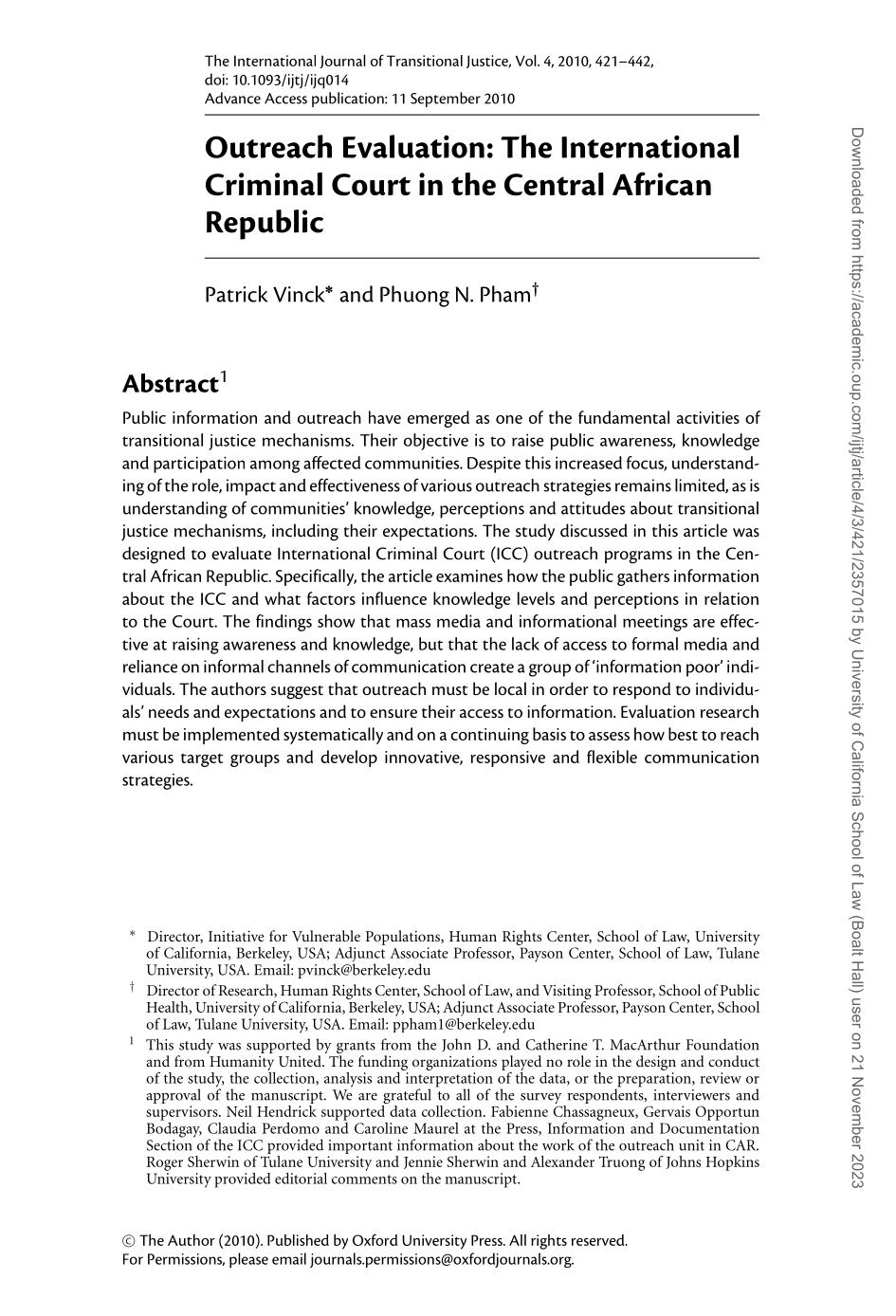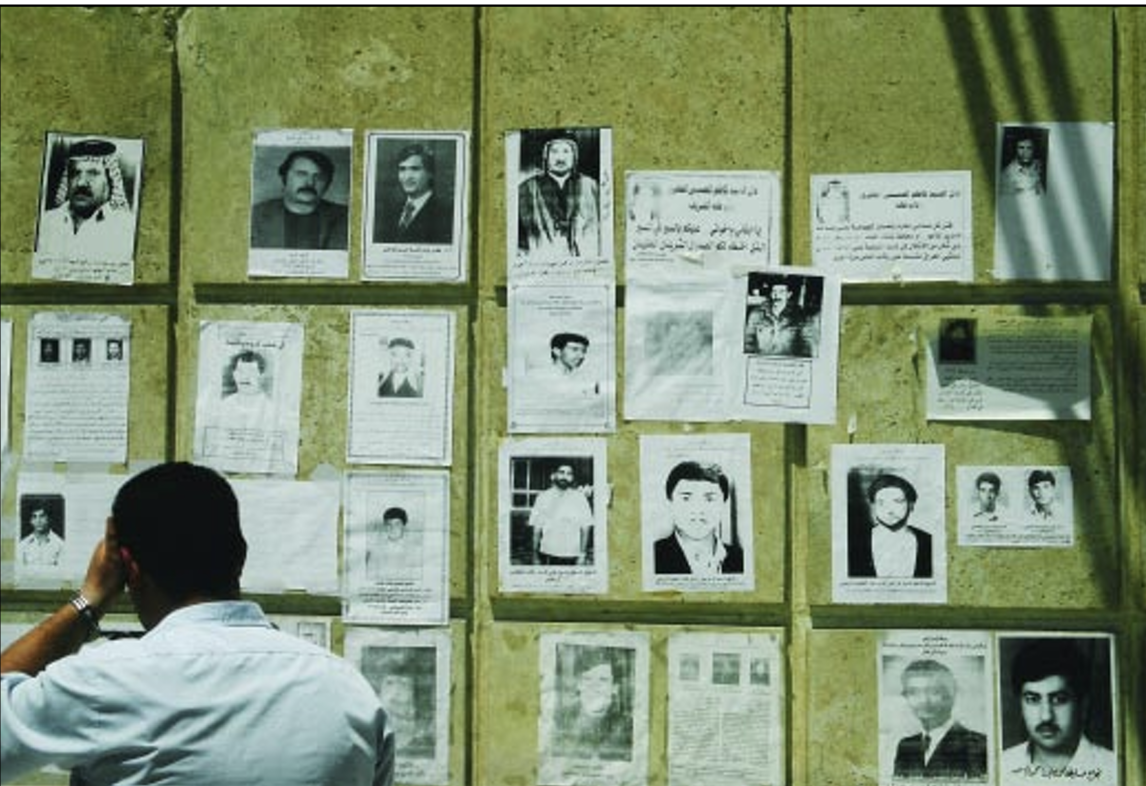Outreach Evaluation: The International Criminal Court in the Central African Republic
Download ReportSummary
Public information and outreach have emerged as one of the fundamental activities of transitional justice mechanisms. Their objective is to raise public awareness, knowledge and participation among affected communities. Despite this increased focus, understanding of the role, impact and effectiveness of various outreach strategies remains limited, as is understanding of communities’ knowledge, perceptions and attitudes about transitional justice mechanisms, including their expectations. The study discussed in this article was designed to evaluate International Criminal Court (ICC) outreach programs in the Central African Republic. Specifically, the article examines how the public gathers information about the ICC and what factors influence knowledge levels and perceptions in relation to the Court. The findings show that mass media and informational meetings are effective at raising awareness and knowledge, but that the lack of access to formal media and reliance on informal channels of communication create a group of ‘information poor’ individuals. The authors suggest that outreach must be local in order to respond to individuals’ needs and expectations and to ensure their access to information. Evaluation research must be implemented systematically and on a continuing basis to assess how best to reach various target groups and develop innovative, responsive and flexible communication strategies.

